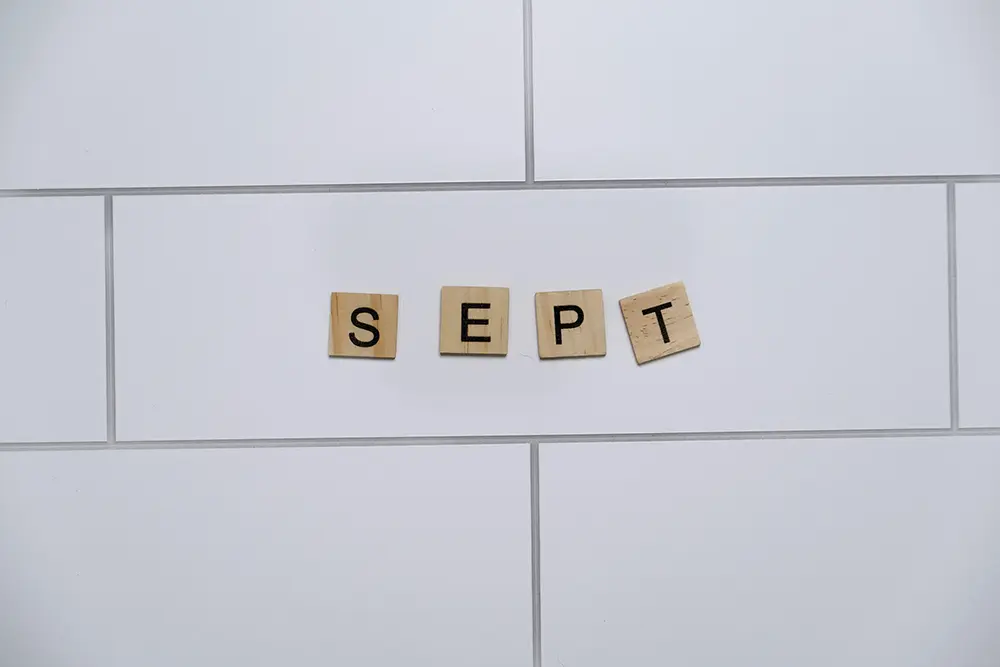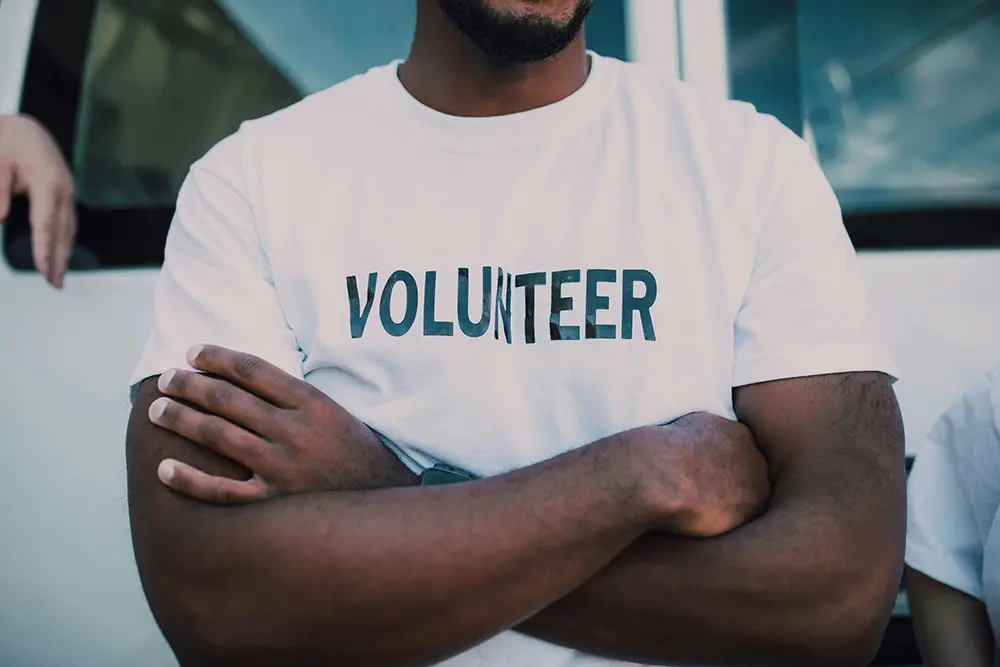Recovery Awareness Month is a powerful opportunity to honor the journey of healing and raise awareness about substance use and mental health recovery. Whether you’re part of a treatment center, community group, or simply want to support loved ones, there are countless ways to get involved.
Here are eight meaningful ideas to celebrate Recovery Awareness Month:
- Host educational workshops on recovery topics
- Organize alumni panels to share lived experiences
- Share personal stories on social media to reduce stigma
- Create art or writing projects that celebrate resilience
- Plan community walks to promote visibility and unity
- Hold candlelight vigils to honor those in recovery and remembrance
- Facilitate gratitude circles to foster hope and reflection
- Launch awareness campaigns that highlight local resources and support
At Harmony Hills, we believe in the power of community and storytelling to inspire change. Our team offers compassionate, evidence-based care and encourages everyone to participate by uplifting voices and promoting healing. Every action—big or small—helps build a culture of recovery, support, and lasting transformation.
What Is Recovery Awareness Month—and Why it Matters
Recovery Awareness Month, observed every September, is a national initiative that celebrates the strength of individuals in recovery and promotes awareness around substance use and mental health challenges. It’s a time to honor personal journeys, reduce stigma, and highlight the importance of accessible, compassionate treatment.
By sharing stories, hosting events, and engaging communities, Recovery Awareness Month fosters hope and connection. It reminds us that recovery is possible—and worth celebrating.
Why Recovery Awareness Month Matters:
- Raises awareness about addiction and mental health recovery
- Reduces stigma through education and storytelling
- Encourages community involvement and support
- Highlights the importance of evidence-based treatment
- Celebrates the resilience of individuals and families
Whether you’re in recovery, supporting someone, or advocating for change, this month offers a meaningful opportunity to uplift voices, build understanding, and strengthen recovery-friendly communities. Every action taken helps pave the way for healing and long-term wellness.
Recovery Month Ideas to Support Healing and Connection
Recovery Month offers a meaningful opportunity to celebrate healing, reduce stigma, and strengthen community support for individuals in recovery. Thoughtful activities can foster connection, honor personal growth, and raise awareness about addiction and mental health. Whether you’re part of a treatment center, alumni group, or advocacy organization, these ideas can help build a recovery-friendly culture.
Host storytelling events, gratitude circles, or art showcases to highlight resilience. Organize community walks, educational panels, or volunteer days to promote unity and purpose. Each initiative reinforces the message that recovery is possible—and worth celebrating.
Recovery Month Ideas Chart
| Activity | Purpose | Impact |
| Storytelling Night | Share lived experiences | Builds empathy and reduces stigma |
| Community Walk | Promote visibility and unity | Encourages public support |
| Art or Writing Showcase | Express recovery through creativity | Honors personal growth |
| Gratitude Circle | Reflect on progress and hope | Strengthens emotional connection |
| Educational Panel | Inform and engage the public | Raises awareness and understanding |
How Harmony Hills Supports Recovery Awareness Year-Round
Harmony Hills supports Recovery Awareness year-round by integrating education, advocacy, and compassionate care into every aspect of its programming. Beyond September’s observance, our dedicated team of licensed clinicians, peer mentors, and support staff remains committed to reducing stigma, empowering individuals, and fostering long-term healing through trauma-informed, evidence-based treatment. We believe recovery is a lifelong journey—one that deserves consistent attention, connection, and care.
Clients and families benefit from personalized therapy, holistic services, and community-building initiatives designed to reinforce hope and resilience. Our team works collaboratively to ensure every individual receives the tools and encouragement needed to thrive.
Year-Round Recovery Support Includes:
- Educational resources and blog content
- Holistic therapies and peer support groups
- Family involvement and alumni programming
- Licensed clinicians offering individualized care
- Community outreach and awareness campaigns
At Harmony Hills, recovery is a daily commitment. Meet our team to learn more about our approach, values, and clinical expertise.
Tips for Planning Your Recovery Month Event
Planning a successful Recovery Month event requires intention, collaboration, and a clear message of hope and healing. Whether you’re organizing a community walk, panel discussion, or creative showcase, thoughtful preparation ensures your event uplifts and engages participants.
Start by defining your goals—awareness, celebration, education—and build your event around those themes. Involve alumni, families, and local organizations to foster connection and amplify impact.
Planning Tips:
- Choose a meaningful theme and format
- Secure a venue and necessary permits early
- Promote through social media, flyers, and local partners
- Include personal stories or interactive elements
- Offer resources and follow-up support
Event Planning Chart
| Step | Action | Purpose |
| Theme Selection | Align with recovery values | Sets tone and message |
| Community Involvement | Invite speakers, volunteers, partners | Builds engagement and visibility |
| Promotion Strategy | Use digital and local outreach | Boosts attendance and awareness |
| Resource Sharing | Provide educational materials | Extends support beyond the event |
Sample Timeline for Recovery Awareness Month
Planning a Recovery Awareness Month event benefits from a clear timeline that balances preparation, outreach, and engagement. Starting early ensures strong participation and meaningful impact. Here’s a sample structure to guide your efforts throughout September.
Sample Timeline:
- Early August: Choose your theme, secure a venue, and confirm speakers or partners
- Mid-August: Begin promotion via social media, email, and community flyers
- Late August: Finalize logistics, gather materials, and prep volunteers
- Week 1 (Sept): Launch kickoff event or awareness campaign
- Week 2: Host educational panels or storytelling nights
- Week 3: Organize creative showcases or community walks
- Week 4: Close with a gratitude circle or alumni celebration
This timeline allows for a variety of activities that promote healing, connection, and education. Whether you’re a treatment center, advocacy group, or recovery community, thoughtful planning helps amplify your message and foster lasting impact.
Final Thoughts: Carrying Awareness Into Every Month
Carrying the spirit of Recovery Awareness Month into every month is essential for sustaining momentum, reducing stigma, and fostering long-term healing. Awareness isn’t a one-time campaign—it’s a continuous commitment to education, empathy, and advocacy. By integrating monthly themes and activities, organizations and communities can keep recovery visible and valued year-round.
Sustained Recovery Awareness Themes by Month
| Month | Theme | Focus Activity |
| October | Ongoing Education | Host webinars or expert panels |
| November | Gratitude Practices | Launch thank-you campaigns or journaling prompts |
| December | Storytelling | Share recovery journeys via blog or podcast |
| January | Advocacy | Promote policy change and public awareness |
| February | Community Engagement | Organize volunteer events or peer meetups |
Consistent storytelling, gratitude practices, and community engagement help normalize recovery and celebrate progress. Whether through workshops, support groups, or social media campaigns, each month offers an opportunity to reinforce hope and connection.




